Toph Beifong doesn’t hold up as disability representation - Disability in the Media
Avatar the Last Airbender is one of my all-time favourite TV-shows, and Toph is still easily one of my favourite members of Team Avatar. I was a few years younger than Toph when the show first started airing, and being a disabled kid who was into martial arts, constantly being dismissed by my able-bodied opponents and teachers, meant that I connected very strongly with her right from the get-go.
But upon my last couple of rewatches of the series, I began to come to the realisation that my opinions on Toph as a shining example of good disability representation were... well, pretty heavily influenced by my nostalgia for the show and that many aspects of Toph's character just don't hold up today. Which, honestly is fair, the show is nearly 19 years old (if it were a person in my country, it would be old enough to drink) and I think it's pretty ridiculous to expect every part of every character from an 19 year old show to age well. So today I wanted to talk about the things I think Avatar the original Last Airbender did right with Toph, where I think they missed the mark, and what changes I think would need to be made to Toph to make her work for a modern audience.
So let's start with why I think Toph doesn't really hold up as "good disability representation" today, and the elements of her character that just haven't aged as well.
For me, one of the biggest issues I noticed upon rewatching the show, is how often we are told (often by Toph herself) that she is blind, but how infrequently we are actually shown it's impact on her life beyond her bending or outside of jokey contexts. Outside of her bending, we only ever see her blindness impacting her ability to do things like read or write, otherwise, she functionally has full vision -so far as the audience is informed - with the only exceptions being when she's in the air or water (e.g. on Appa or in the submarines) or in loose soil (e.g. the desert). Having places and circumstances where she doesn't have access to her power that allows her to "see" was a step in the right direction, but I do think it would have been better if her seismic sense wasn't quite as accurate, even in the most ideal of circumstances.
But why? Well, I think Suki explains it really well, long before Toph is even introduced. when Sokka says "I should have seen you as a warrior instead of a girl" Suki stops him and says "I am a warrior, but I'm also a girl". Being a warrior and a woman are both important parts of Suki's character, and only recognising her as one or the other means ignoring a big part of who she is, and the same is true for Toph. Being blind is a big part of toph's character that has informed a lot of her life, but so is being a warrior and bending master. Many people see Toph as a warrior or fighter, but ignore her disability, but both are important. She's disabled, and a warrior, and those things don't cancel each other out, the same way being a warrior doesn't diminish Suki's status as a woman.
When the show was still airing though (and even still today) it was very common to see non-disabled fans of the show exclaiming that they honestly forget that Toph is even blind sometimes, with many people going so far as to say that she's not even disabled (and that this was a good thing). While I do think some of that comes from the fact they weren't used to seeing a disabled character as both disabled and an active participant in these kinds of stories, I do think this mostly happened because of the show's lack of, well, showing the impact of her blindness on her daily life and allowing her earthbending and seismic sense to erase the effects of her disability to some extent. It's much harder to forget a character is blind when it impacts their daily life in ways that are shown to the audience. This doesn't have to be in big, showy ways mind you, showing things subtly but consistently works way better than one "very special episode" type setup.
In the show as it is though, the seismic sense functionally gives Toph a perfect image of her surroundings until it's just not available anymore for *plot reasons*.
In many ways, her picture of the world is better and clearer than what the non-disabled characters can see, leading to this feeling of her disability being erased. It may have been better though if the seismic sense could give her a general idea of big things in her immediate vicinity but she still missed the finer details, functioning at least a little bit more like a tactile/earthy-vibration version of the limited sight some legally-blind people have in real life. Things like a person's position, movement and overall pose would still be "visible" to her in a general sense, as well as big things in the environment (including things underground, since there are a few plot-points that require that), but smaller things like details about objects and creatures, people's facial expressions or what they're doing with parts of their body that have no direct contact with the ground (like their hands) is less clear.
On top of this, she may struggle to detect smaller, lighter objects or creatures that realistically wouldn't cause much of a vibration at all. creatures as small and as light as Momo and Hawky for example might be detectable, but "fuzzy" to her, and anything smaller might make enough of a vibration to tell her it's there when it moves, but not enough for her to be able to tell what specifically it is without some other cue (such as sound). There are a few moments in the show that seem to imply this is what they were initially going for, but it's not really consistent, and is directly contradicted in her debut episode, "the blind bandit" when she explains that she can even "see" something as small as the ants off in the distance.
With an adjustment like what I'm suggesting though, she still serves her narrative purpose of teaching Aang the importance of being able to wait and listen - possibly even more so, as her needing to wait and collect more information in order to get a clearer image before striking, would back-up what Bumi tells Aang that he needs in an earth bending master. It would also still help to illustrate the connectedness of the world, a theme Toph continues to embody heavily in The Legend of Korra, while still showing the ways her disability impacts her more frequently.
When I talked about the "super-crip" trope a while back, I mentioned that one way to avoid the more harmful elements of the trope (where the character's disability is erased by their powers) is to use the ability in question more like a mobility or disability aid than a straight-up cure. The power should help them, but shouldn't make their disability redundant. People are creative and we would find ways to use a superpower or magic to help with our disabilities if it were available in real life, but what's the point of including a disabled character if you're just going to functionally erase their disability? For a character like Toph, I think this is the kind of approach that should be taken with her. Her seismic sense still helps her, but it's not a perfect replacement. (Ironically, I did use Toph as a "good" example of that trope, but I do think after this last rewatch, for the reasons I'm discussing here, I might have to backtrack that a bit).
I considered giving an alternative approach here, to keep the sensitivity of toph's seismic sense as it is in the show as is, but giving it draw-backs such as making her susceptible to sensory overload similar to what autistic people experience. However, while replacing one disability with another can work for some characters and stories, I don't think it's the best adjustment to make for Toph or any blind character, largely thanks to this also being a trope. The "blind (or d/Deaf) person who's other senses become super-human to make up for it" trope is very common in fantasy, sci-fi as well as older martial arts films, and while I'm not really the best person to cover it, I do know that members of both the blind and deaf communities have expressed a lot of frustration with it. Toph already falls into this trope quite a bit, and any suggestions I could make would have just dialled that element up to 11, and fixing one problem with another is never a good idea.
Another thing that actually did bug me for a while, even before my most recent rewatch of the show, is how Toph is treated on the rare occasions she does point out something won't working for her. There are a number of times where Toph advocates for herself and points out that something The Gaang is doing isn't accessible to her or sets a boundary to do with her disability, and she's either left behind, her concerns are brushed off or she's ignored entirely. The three most noticeable examples of this are in the Episodes "The Ember Island Players," "The Library," and Toph and Katara's segment of "Tales of Ba Sing Se."
In the Ember Island Players, Toph complains that the seats they have for the play are too high up and too far away, and she's unable to "see" what's happening on stage. Her friends don't really take any notice of her though except for Katara who tells her not to worry, "I'll tell your feet what's happening."
My problem here is that this particular kind of situation is something that is familiar to a lot of disabled people. Even the least independent disabled people I know get annoyed when their access needs or requests for accommodations, even among friends, are ignored and their pushback is brushed off with "don't worry, I'll just help you!" It's one of the first things that many disabled people tell non-disabled folks wishing to be better allies to us: you offering help instead of actually accommodating us isn't a good thing. We don't want to rely on others if we can avoid it, because honestly, non-disabled people often aren't very good at actually helping or in this case, relaying information to us without training and more often than not, it just results in us being left out. I find it very hard to believe a character as independent as Toph would accept that without any protest, especially considering that is pretty much exactly what ends up happening (even if the show didn't really acknowledge it). Katara never actually conveys anything about the play to Toph, except when she's attempting to throw Toph's words back in her face when she asks for clarification about the actor playing her - which ends up backfiring on her.
While it would have been better if Toph was actually listened to, it would have been...fine? if a justification was given for why they had to sit there (e.g. to avoid being recognised), if Katara had actually described the play for her. This wouldn't have been ideal, but it would have been better at least. In real life, many movies, TV shows (including this show's sequel series, The Legend of Korra) and other forms of visual media have an Audio Description track that does exactly that. If they weren't going to move for Toph to be able to see better, having Katara describe the play could have introduced kids to the fact this is an option. but instead it's brushed off, and I'll admit, it left a bit of a bad taste in my mouth, even back in 2006.
The Library is a bit more forgivable in my opinion, since Toph is still new to the group, but in this episode, she states that she doesn't want to go inside the spirit library because she isn't able to read and therefor there wouldn't be anything for her to do. However, it still would have been nice to see her friends consider this at all before they actually arrived. They could have (and should have) still gone, but some acknowledgement that they at least thought about the inclusion of their disabled friend would have been nice.
Alternatively, I do feel like Wan Shi Tong, a self-proclaimed all-knowing-spirit or his assistants would have been able to point her in the direction of *something* to interest her, since he does imply books aren't the only form of knowledge he collects.
The reason I mention this though is two-fold.
In real life, disabled people are very often left out of "fun" group activities, whether that be in formal settings or in casual ones, like hanging out with friends. If the episode had been framed as "the Gaang learns about the library and decides to track it down," I might have been less critical, but it's specifically framed as something that at least starts out as a kind of break for the team where they all take turns picking out fun things to do so they can rest, and Toph's access needs not being considered at all until they're already there hits a bit close to home, especially since they just end up leaving her outside. Secondly, there's also a stereotype that disabled people (and especially blind people) don't belong in academia and places of learning, such as in this case, libraries. This stereotype is about as old as the concept of organised institutions of learning, and definitely isn't unique to AtLA, but the assumption is often that disabled people wouldn't be interested in more formal methods of learning, so it's not worth accommodating us. With blind people in particular, when I've seen this in media, the premise is often "well I can't read anyway so why bother?" which Toph definitely falls into here with no push-back against the trope.
It does make sense that she would have been resistant to going in, and I'm not saying this episode should have turned Toph into a bookwork akin to Wings of Fire's Starflight (another blind character) or anything. But there was a chance in this episode to push back against some of these assumptions, and I think it's a shame they missed it. How cool would it have been if Toph had mentioned not feeling welcomed in more formal learning spaces because of her disability, which was just reinforced by the way her old earthbending instructor and her parents treated her. She decides to go inside the library anyway as "backup" in case something goes wrong, grumbling about it the whole way down. Wan She Tong starts his introduction mostly the same way, saying humans aren't welcome and Toph makes a snarky comment about it. Wan She Tong, equally offended that this human thinks he, the all-knowing-spirit, wouldn't have considered something, shoots back with an annoyed comment about humans being so self-centred. He explains that spirits come in all shapes and sizes, and not all of them have eyes, but they can still access his library. She's not the first sightless being in his study, and he-who-knows-ten-thousand-things knows this too. Once everyone is permitted entry, one of the knowledge seekers shows her to a series of slates about a lost earthbending form that she can actually read (or at least, "see" the pictures on) because it's carved. Or instead of a slate, it's a series of statues outlining the form, similar to what Aang and Zuko find in the episode "The Firebending Masters". Perhaps this form is something that helps her develop metal bending later on, and lays the groundwork for Toph becoming interested in teaching in the comics.
And finally, Toph and Katara's segment of Tales of Ba Sing Se. Katara convinces Toph to go get a makeover with her as part of a girl's day. Overall, this segment of the episode is pretty nice, and I liked that they showed that a person's gender expression (in this case, being a tom-boy) doesn't mean they can't like things outside of what we usually associate with that. Tom-boys can like girly things on occasion, and vice-versa, and I think this is an example of an episode that would seem a bit ham-fisted today, but honestly, was needed in 2006. However, there's a throw away joke where Toph says "as long as they don't touch my feet," and it immediately cuts to show spa workers filing down the calluses on her feet in a way so painful several staff are required to hold her down.
this might be a minor thing in the grand scheme of the show, but it's still another example of Toph's boundaries about her disability and her access needs being disrespected by her friends, which the show just doesn't acknowledge it at all. People ignoring Toph's wishes about a part of her body she depends on in a much more direct way that others do is played off like a joke in a montage of otherwise enjoyable and goofy activities and this is a very, very common experience in disability circles.
There are a number of other, much more minor issues that show up with Toph as well, such as the fact she's the only one of the main cast who never has an on-screen (or on-page) relationship. not in the original show, not in any of the comics and not in The Legend of Korra. Again, it's not a big issue on it's own, especially because in AtLA, she's young enough where it's possible that she was just not interested yet, and she does have kids in The Legend of Korra where she mentions a relationship with a man named Kanto (Lin's father). So it is implied she does have some form of relationship eventually, but the issue is that it's never shown on screen or on the page. This feeds into a wider pattern in media of disabled characters being the only ones in their respective cast not given on-screen romantic relationships in stories, and so I still think it's worth pointing out, especially since the creators have had a lot of opportunities to correct that by now.
Toph is also portrayed, pretty much undeniably, as the best earthbener in a way that, at times, comes across almost like the creators felt like they need to compensate for her being on the team "despite" her being blind. This trope is one that I think Toph, at least partially, helped to popularise with the current generation of story tellers: The Disabled Savant. In this trope, disabled characters aren't really given the same room for growth as other characters; they aren't permitted to be average or still learning, they start good and get better. If they do progress, they often become the best, which is the case for Toph. To be fair, everyone in the The Gaang is the best at their respective skill by the end of the first series, which is why I say this is a minor point. She dose, however, have the least amount of on-screen growth in skill out of the whole team. Katara starts out barely able to lift any water at all, let alone actually bend it. Sokka is skilled with weapons from the start but does get his butt handed to him a number of times by others with more experience than him whom he learns from throughout his story arc. Zuko spends most of the early-to-middle of the show having things "blow up in his face" (to use his own words) and being belittled by his family of prodigies. While Aang is an airbending and, to a lesser extent, waterbending prodigy, he fails at pretty much everything else for a while before he starts to find his confidence - especially earth and firebending, not to mention the entire situation with locking himself out of the Avatar state. Toph is the only one who doesn't seem to fail or struggle all that much from a combat perspective. She does grow and improve in her bending (she invents metal bending after all) but she never has any moments where she really messes up or even struggles in combat all that much compared to the others.
All of these points and criticisms I've mentioned are not necessarily big in and of themselves, but when looked at together, they build up to create some issues with how Toph is depicted and how the people around her treat her disability
So that's it then? Toph is bad disability rep and Avatar should be "cancelled"?
God no. Like I said at the start, I still adore Toph and Avatar as a whole, but the show is a year away from being two decades old, it's bound to have some elements that don't hold up and I think it's worthwhile discussing them, specifically because I love the show and it's characters. Despite all the negativity I've brought up, I do think there are a lot of things AtLA did well with Toph too.
I've mentioned a few times that we rarely see how Toph's blindness impacts her life outside of her bending and combat abilities, and there's a reason I made that specification. Unsurprisingly, if you know much about the show's development, the ways in which Toph’s blindness and seismic sense impacts her bending and fighting style is one area where the show really does shine, and I still think that is worth a mention. The various types of bending are based on different styles of martial arts, specifically, different types of Kung Fu. Most earthbending in the show takes heavy inspiration specifically from Hung Ga, but Toph is different. Her bending heavily references Southern Praying Mantis Kung Fu, something unique to her within this world.
The reason for this (outside of simply wanting her to be visually distinct) was because the show’s creators made sure to consider what limitations Toph might have and what parts of the more common earthbending styles wouldn't work for her. Since her connection to the earth was critical in order for her seismic sense to work, they decided on a style that would keep her feet on the ground more, prioritised strong stances with minimal jumping and put more focus on attacking with her upper body. While not an intentional choice, the style they went with for Toph, according to the show's head martial arts consultant, Sifu Kisu, was supposedly developed by a blind woman in real life, at least according to legend. The creators also made further adjustments to the style with the help of martial arts consultants and just watching Toph fight is evident that a lot of love and care was put into the decisions made on that front.
I also appreciate that Toph's disability wasn't off-limits to joke about.
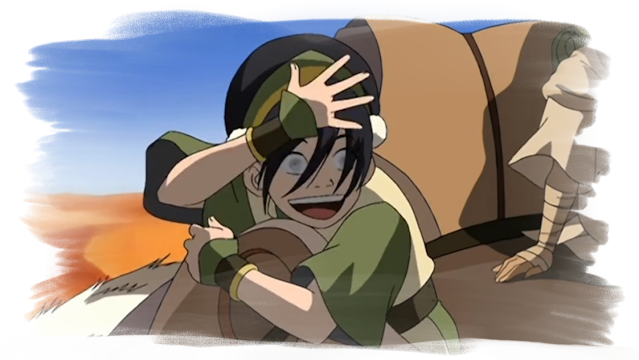 |
| [ID: A picture of Toph waving her hand in front of her face with an exaggerated smile to remind the others she's blind. /End ID] |
As I already mentioned, they didn't land 100% of the time, but lot of shows are afraid to use disability as a source of jokes, which would have felt weird and out of place in a show like Avatar. I see this hesitance in real-life too; people get extremely uncomfortable when I joke about my own disabilities and I've heard several people and even disabled comedians talk about the same observation. My last video on Tik Tok that got outside my usual audience was a joke about my prosthetic leg, and every single stictch and duet I received was people saying some variation of "I'm such a bad person for laughing!" "I'm going to hell!" or just straight up asking if they're aloud to laugh. If I didn't want you to laugh, I wouldn't have posted the joke! But joking about disability does make it more approachable.
Despite how often Toph and the others made blind jokes though, outside of the one instance I mentioned earlier, they never felt mean-spirited or like they were punching down. Even when a very sleep-deprived Katara was intentionally trying to be.
I think it's also worth keeping in mind the context of the media landscape when Avatar The Last Airbender was airing. Today, characters like Toph are very common, so much so there's a whole trope about them (super-crips) but at the time, having a character with a major disability be a main character in an action-orientated kids show like Avatar was really rare. She wasn't the first of course, but a lot of the time, if they were included, they were almost certainly sad and depressed, wishing for a cure or they were designated to the roles of "Guy in the chair" (which is a character, usually a tech person, who helps from the background), inspiration, scary villain fake-out (or other variations of "creepy" character) or the actual villain. Having a character that was not only comfortable in her skin as a disabled person, who didn't want or need to be "fixed" or "cured" to be directly involved in the story, and who's main obstacle (at least in season 2) were how the people around her treated her, was pretty ground-breaking at the time (pun not intended) and went against the most prevalent stereotypes of it's day.
And I really want to emphasise that. For many Millennials and older Gen Zers, myself included, Toph was the first character that didn't tell us we were broken and needed to be fixed in order to be part of the group (even if they slipped up with that messaging occasionally). Prior to seeing Avatar, I honestly thought there was something deeply wrong with me for being happy with my life (a reminder, I was *10 years old* when this show first started airing), because every other disabled person in the media only ever talked about how much worse their life was because of their disability, how much they hated it and how much they hated themselves. Many outright said that they wished they had died rather than become like me. Toph wasn't the first to go against those tropes, but she was the first example of a disabled character who wasn't like that many people my age saw. Did she do it perfectly? Hell no, but personally, back then, I was happy to have a character who maybe overcorrected and took things a bit too far than another sad character talking about how lives like mine weren't worth living.
I also deeply appreciated that Toph did struggle with her independence, at least initially, and where to draw the line with accepting help. Because of how much she'd been coddled and overprotected as a little kid, she saw any attempt at people being helpful and working as a team as them trying to baby her. It was very on the nose, but I liked that the show gave her an episode just dedicated to realising that it's ok to accept help. Again, this is a bit of a story telling trope today, but having the disabled character realise that it's ok to accept help, and to do it without talking down to them or saying that them wanting independence was bad, was a refreshing change compared to what was around at the time.
 |
| [ID: a zoomed out image of Toph, standing before her parents with Aang, Katara and Sokka standing behind her. /End ID] |
While I think the show's creators could have benefited from consulting with disabled people and specifically blind people the same way they brought in consultants for the martial arts featured in the show, it's very clear to me that the intention behind Toph's character was good, and that actual effort was put in to make sure they depicted her well, even if some of it was a bit misplaced. It's also worth noting that the groundwork for a lot of my suggestions is already in place, they just didn't follow it all the way through.
Overall, I'd say Toph was good for her time, and she's what was needed in the 2000's, even if she doesn't hold up as well today. I also think it speaks to how far we've come in terms of disability representation. When I first started engaging with the online fandom directly, almost no one, even other disabled people, argued that Toph wasn't good representation, because honestly, the bar was on the floor and we were just happy to have something different. But now there are options, and the standards are higher, and that's so, so good. It means that people, even in the media, are starting to listen and be more thoughtful about their depictions of disability than we were in 2006.
And finally, I want to really quickly mention The Netflix adaptation of Avatar. A few people have asked me now what I think they should do with Toph when they get to her, and what my predictions about the show are. I'm not going to talk about my predictions here, because this post is already way too long and that's not what this is about, but I don't think the suggestions I made today would necessarily work in this particular remake, primarily because of the tonal differences. Some adjustments definitely could, such the other characters doing a better job at listening to Toph when she points out inaccessibility and them actually considering her in the first place, but others might be harder to balance. The original show could get quite dark and serious at times, but it was primarily a light-hearted adventure story for kids. From what I've seen of the live action remake though, they're more heavily leaning into those serious elements - for better or for worse, and as such, trying to tone Toph down in the specific ways I mentioned might not balance out *as well* as it would in the original show. At the very least, the specifics would need to be different. To be honest, I'm not entirely sure what approach they should take, that's not really the point of this post, but I did want to quickly address it to avoid confusion. My suggestions today were specifically on how to approach the cartoon version of Toph for a modern audience, and were not meant to be read as suggestions on how her live-action counterpart should be depicted.


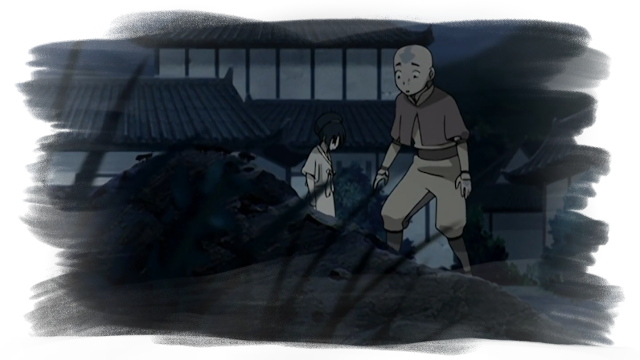
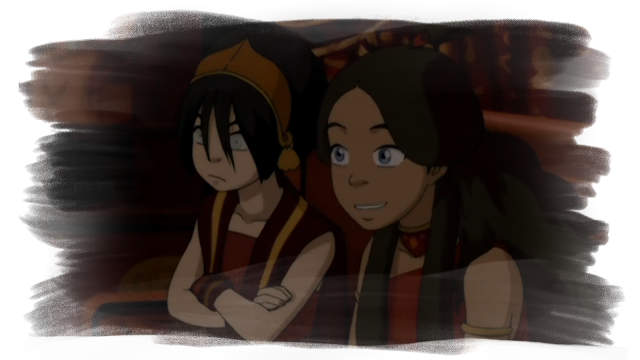
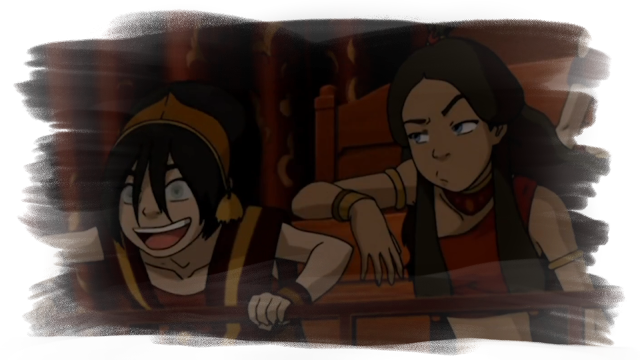
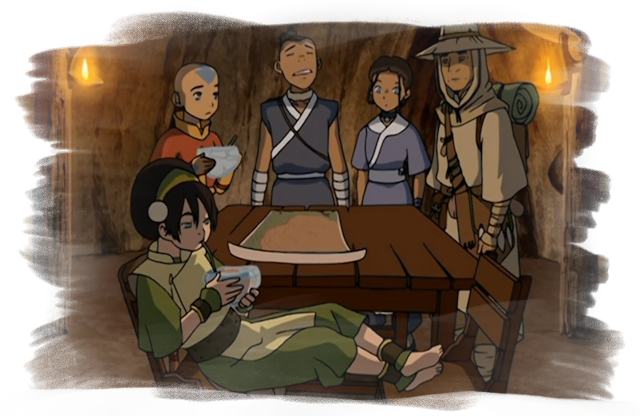
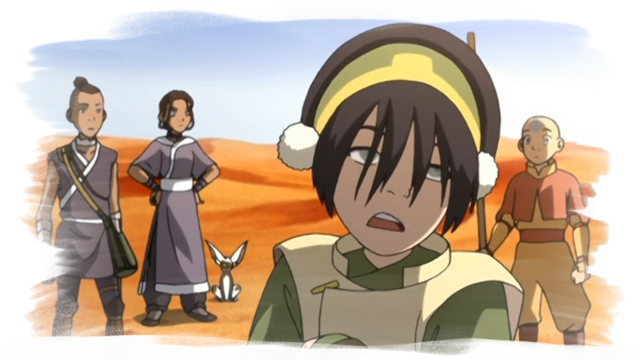
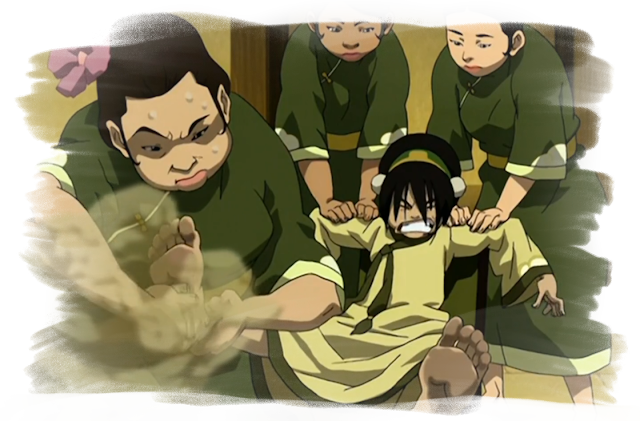
Comments